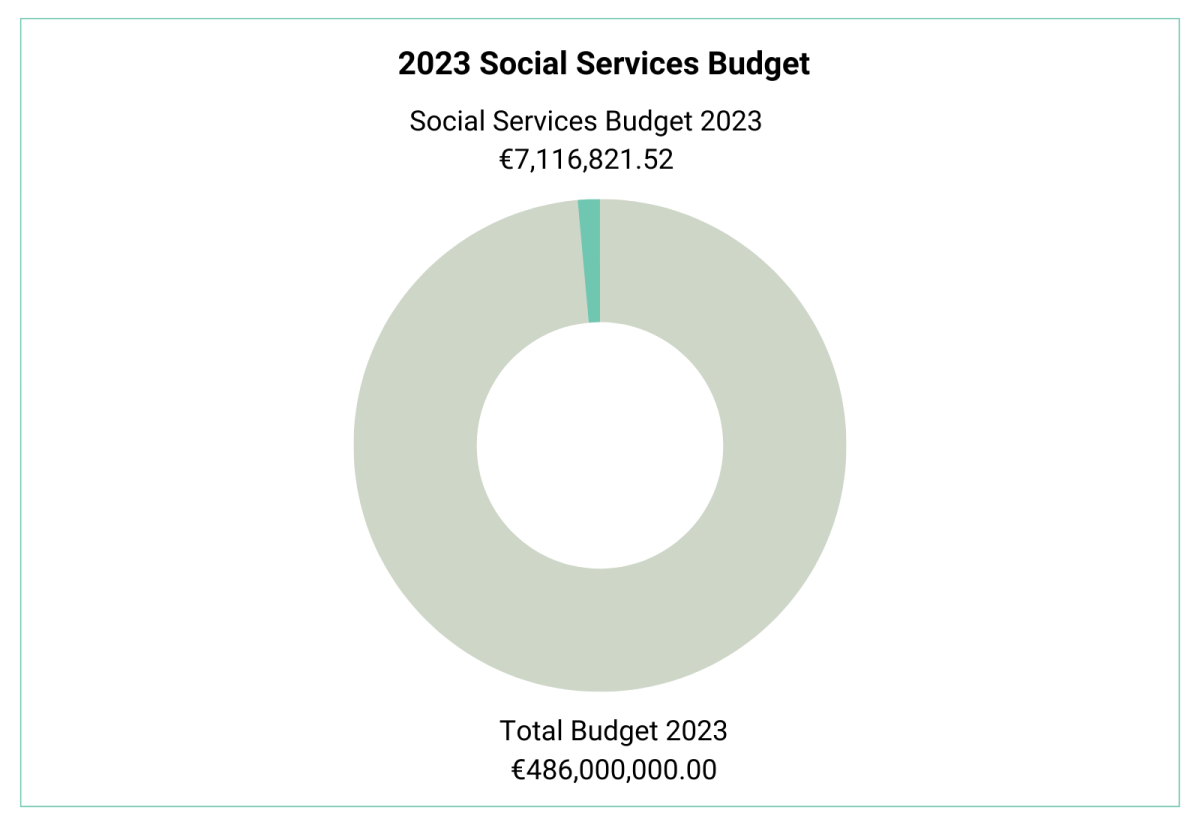RECOMMENDATION
The future Social Services Law should include a common minimum catalogue of social services, a national ethics social services committee, consider proposing ratios of professionals per inhabitant and acknowledging the role of community-based social workers. The legislation should be accompanied by the right type of funding distributed in a similar percentage of 33% across the 3 levels in line with previous commitments in the 1980s.
SOCIAL SERVICES POLICY AND LEGAL FRAMEWORK
There is no national social services legislation; instead, each region has its own law. However, the national government is currently working on a national social services legislation, which is the result of several years of work and a milestone of Spain’s resilience, transformation and recovery plan. The primary objective of this draft law is to modernise public social services, upgrade social rights, and ensure a certain level of service provision for all citizens, regardless of their place of residence, thus mitigating existing regional disparities.
The national government, in cooperation with the regions, has developed a Social Services Catalogue that brings together in a single document the benefits and services that should be accessible for everyone throughout Spain, as well as common quality principles.
The Ministry of Social Rights and 2030 Agenda is the competent authority for social services at national level. The Ministry has a Social Rights Secretariat as well as several general directorates, such as the General Directorate of the Institute for Older Persons and Social Services (IMSERSO) and the General Directorate of Family Diversity and Social Services. However, the statutory duty for social services lies with the regions, which are responsible for legislating, financing and providing social services either directly or contracting them out to the private sector (for and not for profit) and the municipalities. The municipalities are responsible for essential community-based social services, whilst the regions are responsible for specialist social services.
SOCIAL SERVICES INVESTMENT
The total budget for 2023 stands at €486,000,000. The 2023 social services budget provided by the national government is €7,116,821.52.
This budget is complemented by the budget provided by the regions and the municipalities based on their responsibilities or local needs or interests. Therefore, the situation varies from region to region.

SOCIAL SERVICES COVERAGE
Long-Term Care
According to 2023 IMSERSO data, there are 1,739,020 persons who have been assessed as being in need of long-term care and therefore having an Individual Care Programme (PIA in Spanish). Of these, 28.5% (496,400 persons) have been assessed as having severe dependency needs and they need continuing support, and 39% (681,668 persons) have been assessed as having considerable dependency needs and needing support several times a day to carry out their basic daily activities.
Residential Care
According to 2021 data, there were 389,031 residential places for older persons, 62% of which were publicly financed. These places were distributed in 5,542 centres, of which 1,435 were public and 4,107 were private. Among the regions, Castilla-Leon had the highest percentage of public places at 80%, while Galicia had the lowest, with only 41% of its facilities being publicly managed.
Home Care
According to 2023 IMSERSO data, 324,581 older persons are provided with home care, which corresponds to 18.66% of the population aged 65+.
There are no differentiated data by age, but the weekly average number of home care hours is 16.3 for people with moderate dependency needs, 38 hours for people with considerable dependency needs, and 58.8 hours for people with severe dependency needs.
Support Services for People with Disabilities
According to data from the 2020 Survey on Disability, Personal Autonomy and Dependency Situations prepared by the Institute for National Statistics, 4.38 million persons residing in their own homes claimed to have a disability or limitation.
505,400 persons with disabilities are provided with home care services.
Technology and Telecare Services
According to 2023 data, 359,475 people are provided with telecare services - 20.7% of the total number of people who have been assessed as having long-term care needs.
Minimum Income Schemes
According to a 2021 Minimum Income Report, the total number of minimum income beneficiaries was 645,317, of whom 380,654 (59%) were women and 264,558 were men (41%). The average basic amount of the Minimum Income Benefit (RMI) amounted to €490,81.
Child Protection Services
According to 2020 data from the Children’s Observatory at the Ministry of Social Rights, the number of children and adolescents cared for by the public system of child protection decreased from 50,272 in 2019 to 49,171 in 2020.
Likewise, the number of residential care placements decreased from 23,209 in 2019 to 16,691 and foster family placements also decreased from 19,320 in 2019 to 18,892 in 2020.
Services for Homeless People
According to 2022 data, the percentage of homeless persons stands at 8.6%, although there are large territorial differences. The number of support centres for homeless people has increased by 51%, from 675 in 2010 to 1,019 in 2022.
Out of the 1,019 support centres for homeless people, 16.4% are exclusively oriented towards caring for immigrants who are homeless. Additionally, 7% specialise in providing care for women who are victims of gender-based violence.
60% of centres for women victims of gender-based violence are public, while 90% of centres for immigrants are private. 25% of other centres are publicly owned.
According to the National Homeless Survey carried out by the National Statistics Institute, 32% of people in homelessness situations receive one or more public benefits
- Employment-related Minimum Insertion Income -7.6%
- Minimum Vital Income -5%
- Unemployment benefits, non-contributory pensions, and other types of benefits -6%.
However, 30% did not report any source of income support.

